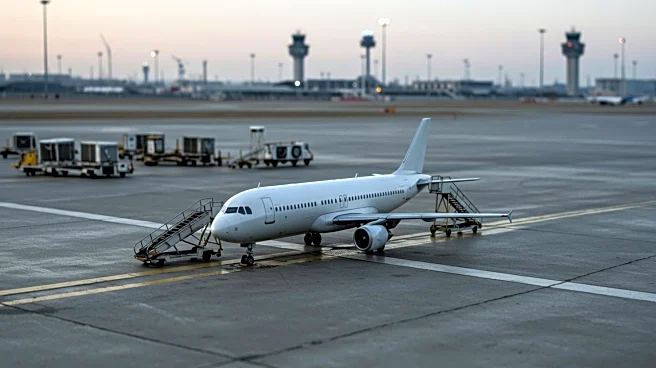What's Happening?
Air Canada has suspended all operations as its flight attendants commenced a strike following unsuccessful contract negotiations. The strike began after attendants issued a 72-hour notice earlier in the week, citing unresolved issues such as wages and unpaid work. The airline anticipated cancelling 500 flights, impacting 100,000 passengers, and has now halted flights on its Air Canada and Air Canada Rouge services. The Canadian Union of Public Employees, representing 10,000 attendants, claims the airline's offer of a 38% compensation increase over four years is insufficient, as it does not account for inflation and leaves attendants unpaid for certain work hours. The union's strike vote saw 99.7% approval, prompting Air Canada to request government intervention.
Why It's Important?
The strike has significant implications for Canada's travel industry, particularly during the peak summer season. With Air Canada being the country's largest airline, the shutdown affects approximately 130,000 daily customers, including 25,000 Canadians. The disruption could have a ripple effect on tourism and related sectors, potentially leading to economic losses. The government's role in mediating the dispute is crucial, as binding arbitration could prevent prolonged disruptions. The situation highlights ongoing labor tensions and the challenges of balancing corporate offers with union demands in a high-stakes industry.
What's Next?
The duration of the strike remains uncertain, with historical precedents suggesting potential for extended disruptions. Air Canada has requested Canada's jobs minister to impose binding arbitration, a move that could expedite resolution but is opposed by the union. The government may intervene to protect economic interests, as seen in past labor disputes involving Air Canada. Stakeholders, including regional trade boards and provincial governments, are urging swift action to mitigate the strike's impact on tourism and the broader economy.
Beyond the Headlines
The strike underscores broader labor issues within the airline industry, where workers often face challenges related to fair compensation and working conditions. The union's stance against binding arbitration reflects a desire for autonomous negotiations, raising questions about the balance of power in labor disputes. The outcome of this strike could set precedents for future negotiations in the sector, influencing how airlines and unions approach contract discussions.











